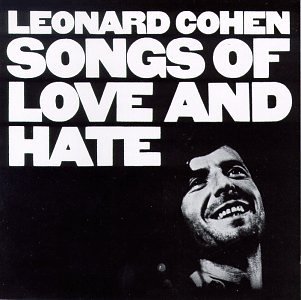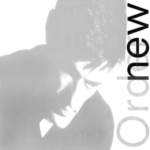 Leonard Cohen’s “Songs of Love and Hate” is a haunting and emotionally profound album that delves into the depths of human relationships, love, and the darker aspects of the human experience. Released in 1971, the album showcases Cohen’s poetic lyricism, soulful vocals, and stripped-down musical arrangements.
Leonard Cohen’s “Songs of Love and Hate” is a haunting and emotionally profound album that delves into the depths of human relationships, love, and the darker aspects of the human experience. Released in 1971, the album showcases Cohen’s poetic lyricism, soulful vocals, and stripped-down musical arrangements.
The album opens with the poignant and introspective “Avalanche.” Cohen’s deep and resonant voice, accompanied by minimalistic guitar chords, sets a somber and contemplative tone. The song’s introspective lyrics and haunting melodies paint a picture of emotional turmoil and the weight of human existence.
One of the standout tracks on the album is the timeless classic “Famous Blue Raincoat.” The song tells a tale of love, betrayal, and regret through its poetic lyrics and Cohen’s emotive vocals. The sparse instrumentation, consisting of delicate acoustic guitar and subtle orchestration, creates an intimate and atmospheric backdrop for the song’s deeply personal narrative.
Another notable moment on the album is “Joan of Arc.” This track showcases Cohen’s ability to craft vivid and emotionally charged storytelling. The song weaves a tale of love and sacrifice, with Cohen’s evocative vocals and the delicate interplay between acoustic guitar and orchestration adding layers of depth and intensity.
Furthermore, the album includes the chilling and haunting “Dress Rehearsal Rag.” The song delves into the darkest corners of despair and emotional anguish. Cohen’s somber vocals and the sparse piano accompaniment create a haunting and chilling atmosphere that leaves a lasting impact on the listener.
Additionally, “Last Year’s Man” stands out as a melancholic and introspective ballad. Cohen’s poetic lyrics and world-weary vocals capture a sense of longing and reflection. The song’s minimalistic arrangement, with its gentle acoustic guitar and subtle orchestration, creates a sense of intimacy and vulnerability.
The album’s closing track, “Joan of Arc,” is a somber and deeply moving ballad. Cohen’s voice, accompanied by simple acoustic guitar and gentle orchestration, conveys a sense of resignation and acceptance. The song’s emotional weight and poignant storytelling make it a powerful conclusion to the album.
Overall, Leonard Cohen’s “Songs of Love and Hate” is a masterful exploration of the complexities of human relationships and the depths of human emotions. The album’s poetic lyricism, Cohen’s soulful vocals, and the stripped-down musical arrangements create a haunting and introspective listening experience. “Songs of Love and Hate” remains a timeless and essential piece of Cohen’s discography, showcasing his unparalleled ability to capture the raw emotions and complexities of the human experience through his music.
This post has already been read 301 times!

























